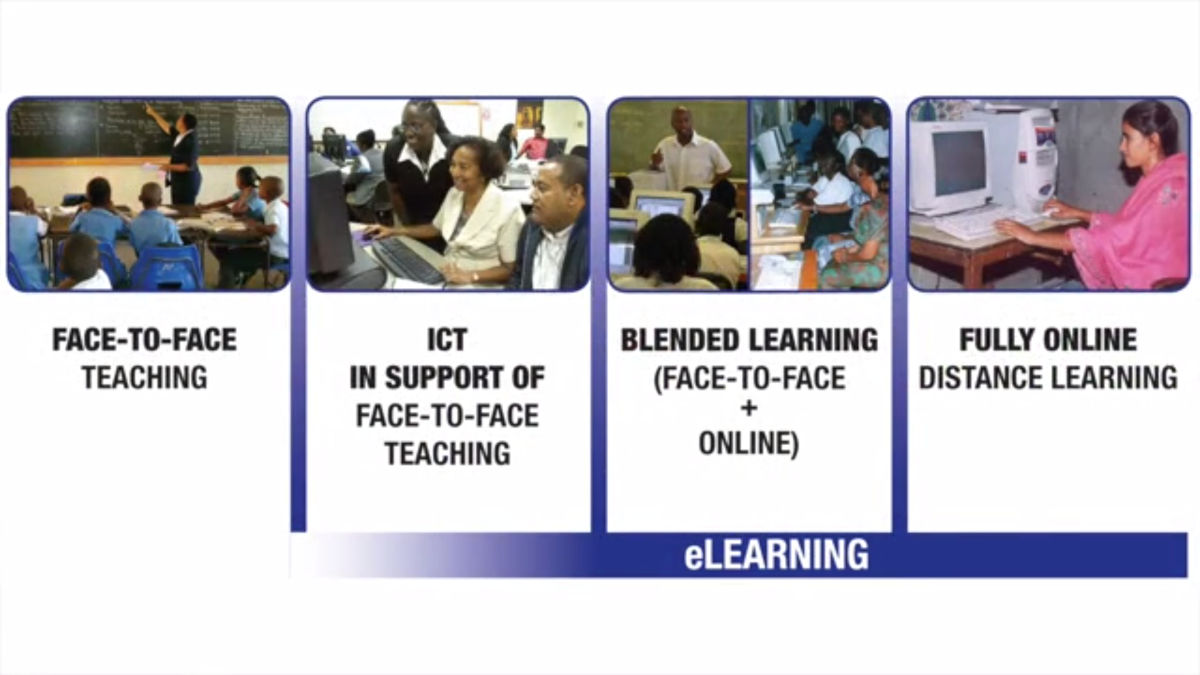Oris teme
Splošno
Technology is changing the way we do nearly everything, from driving our cars to experiencing (virtual) reality, right down to the way we learn and teach.
Find selected articles and webinars that dives into the e-learning waters by addressing a spectrum of issues including the nature of e-learning, the role of technologically-informed teaching and learning in library work, and the resources that are needed to make e-learning happen.
Available only in English.
Source: https://open-shelf.ca/180703-continuum-e-learning-libraries
What is e-learning?
 What is e-learning and can it be said that e-learning is happening just because learners and teachers use technology?Nalepka: 1
What is e-learning and can it be said that e-learning is happening just because learners and teachers use technology?Nalepka: 1E-learning: From replacing some face-to-face teaching to replacing it all
Relationship between e-learning and distance education
Nalepka: 1Elearning: A multi-faceted experience
Teachers and library staff members can find it especially hard to balance the benefits of an e-learning environment with some of the technological limitations
Nalepka: 1Datoteka: 1Advantages and Disadvantages of Distance and e-Learning
Despite its numerous drawbacks, distance learning still provides better learning options for students wishing to enjoy greater convenience and flexibility in pursuing a course. The greatest benefits of distance education is that it allows students to access numerous learning tools using minimum financial resources
Nalepka: 1Libraries as e-learning spaces?
Evaluate how libraries can best support the needs of staff and students engaged with e-learning methodologies in a broad and critical way
Nalepka: 1E-learning in libraries as digital literacy
Digital literacy has necessarily become a large part of library programming - across sectors.
Nalepka: 1Library professionals as e-teachers
Library professionals need to engage meaningfully with students in the adoption and use of e-learning platforms
Nalepka: 1Teaching, learning and reflection
One of the best ways libraries can support e-learning initiatives at their schools or villages is to be engaging critically with these practices in a reflective and relevant way
Nalepka: 1Conclusion
Developing dynamic and proactive digital literacy programming, becoming involved and embedded in e-learning initiatives, and responding critically to emerging and ongoing e-learning programs within our schools and communities will allow libraries and library professionals in educational institutions and villages to be allies in our changing pedagogies
Nalepka: 1
